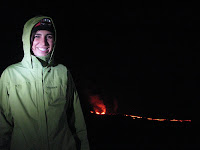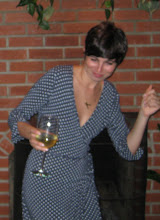
La Reunion has a long and winding history that involves both French and British rule. In the 18th century, the French East India company and French government took it upon themselves to settle the previously uninhabited island known at that time as Ile Bourbon. France introduced coffee as the primary cash crop. The ensuing demand for manpower led to an extensive import of African and Malagasy slaves. From the long history of slavery emerged a local Creole culture and dialect that is still widely spoken among locals as a first language. Indian indentured servants and Chinese merchants came soon thereafter, creating a marked ethnic diversity on the island which is still notable today.
During the Napoleonic Wars, Bonaparte lost the island to the British, who subsequently introduced sugar cane as the new big cash crop; vanilla and other spices

were added to the mix as well. You can see vast fields of sugar cane all over the island today. During harvest season (ie: right now), motorists the island over must share roads with mammoth tractors. They descend the mountainsides piled two stories high with cane, blocking the sun and sky with their enormity. Fear envelopes me every time I see one of them 'a coming...
Ile Bourbon was returned to the French under the Treaty of Paris after only 5 years of British rule. In 1848, slavery was abolished, the island was permanently renamed La Reunion or
'meeting,' and it became an official Departement Francais d'Outre-Mer (DOM) in 1946. Today the island is home to nearly 800,000 people including Creoles, French expats (affectionately or sometimes derogatorily called
les Zoreilles), Indians, Chinese, and of course little pockets of random foreigners like myself.
La Reunion is a tourist destination with many visitors from Europe. The primary reason that people seem to come here is for the hiking and extreme sports--there is no shortage of incredible trails and mountain passes to explore. Of course there are also the white sandy beaches that encircle the island, but believe it or not, the beaches are not what the island is known for. They take second place to the mountain adventures (although I would personally disagree with that statement!). All living and activity is inclined towards the outdoors. There are more than 20 micro-climates; from one town to the next you can see stark temperature changes and differences in rainfall. As we approach the very hot summer months, I am happy to know that I can always go into the mountains to cool off.
And finally a word on the quality of life: La Reunion is not a wealthy country, but it receives a lot of assistance from France and most people enjoy modern conveniences; it's not difficult to find the things you need. The population is extremely ethnically diverse, so despite the small size of the island, you have a nearly New York melting pot vibe. The west coast where I live is notoriously
Zoreille, but going deeper into the mountains you will find many small Creole towns, the east coast town of St. Andre is famous for its Tamil Indian population, and of course the large cities like St. Denis have a little bit of everything and everyone.

 Halloween is not widely celebrated here, nor is it very well known; some even go so far as to boycott it, expressing chagrin over the fact that this is yet another symbol of the encroaching "western world." Nonetheless, my neighborhood was transformed come sunset: little witches, monsters, and unrecognizable winged creatures shrieking for, "Les Bonbons, Les Bonbons!!"
Halloween is not widely celebrated here, nor is it very well known; some even go so far as to boycott it, expressing chagrin over the fact that this is yet another symbol of the encroaching "western world." Nonetheless, my neighborhood was transformed come sunset: little witches, monsters, and unrecognizable winged creatures shrieking for, "Les Bonbons, Les Bonbons!!" The funniest sensation was knowing how truly far from home I was at that moment, but surrounded by children who could have been me and my friends 15 years ago. In place of the chilly autumn air whipping through some little polyester princess get-up, a hot stifling stillness was causing a small vampire's face paint to melt off. No bobbing for apples, crisp fall leaves, or candy corn: just mangoes, palm trees, and bonbons!
The funniest sensation was knowing how truly far from home I was at that moment, but surrounded by children who could have been me and my friends 15 years ago. In place of the chilly autumn air whipping through some little polyester princess get-up, a hot stifling stillness was causing a small vampire's face paint to melt off. No bobbing for apples, crisp fall leaves, or candy corn: just mangoes, palm trees, and bonbons!













